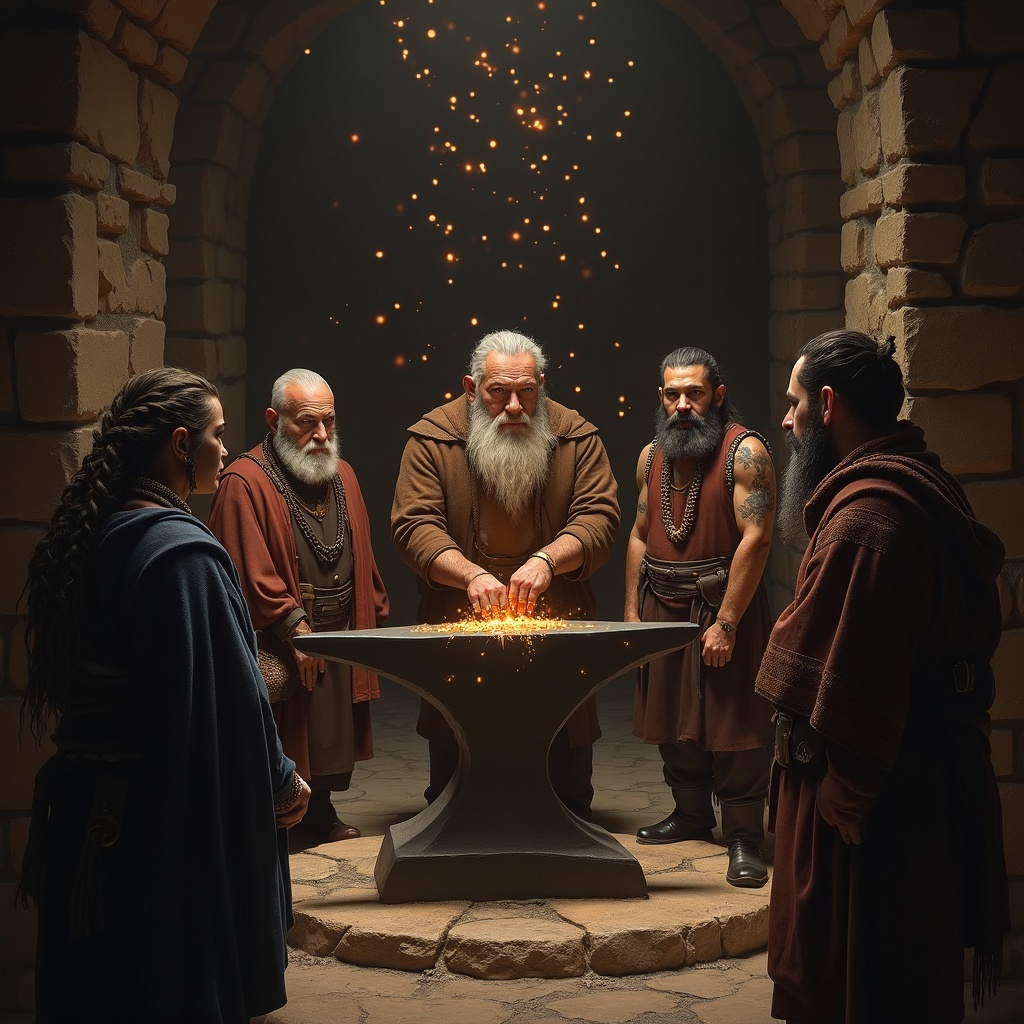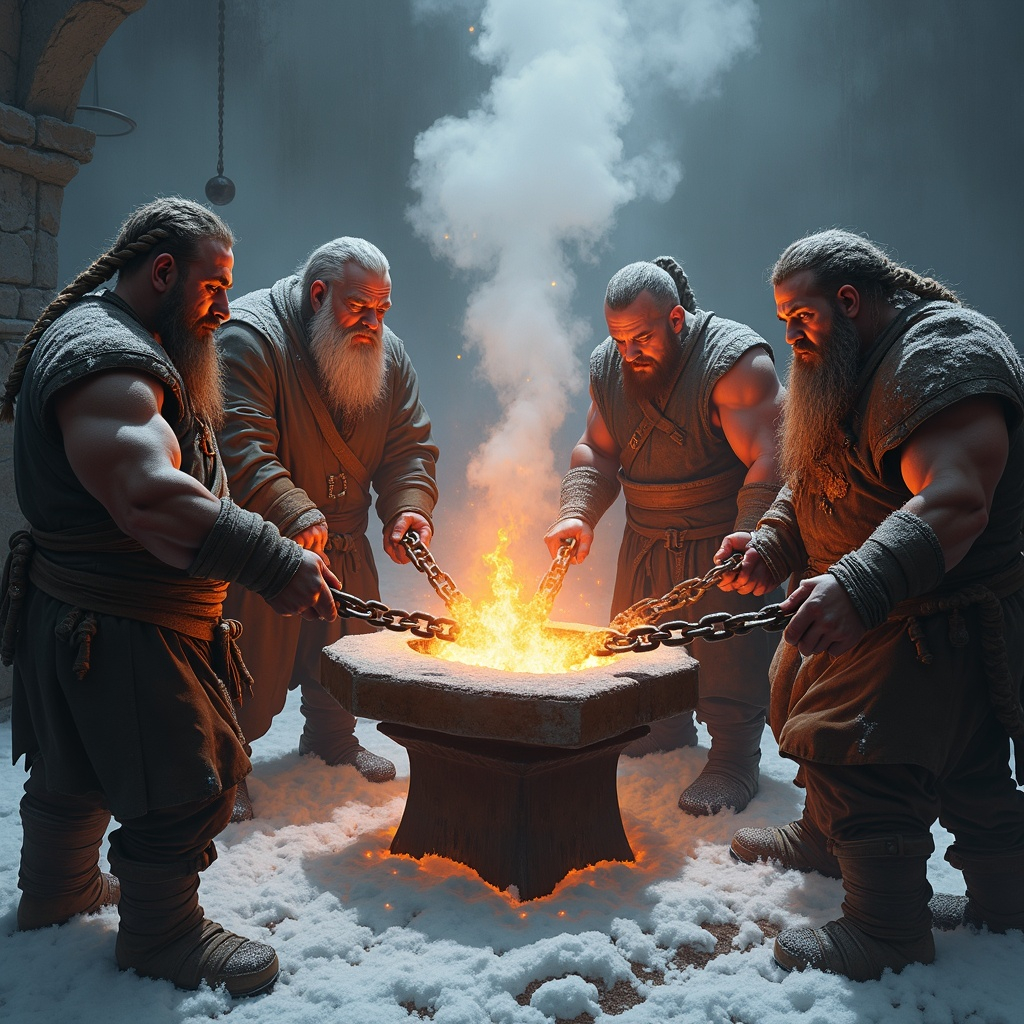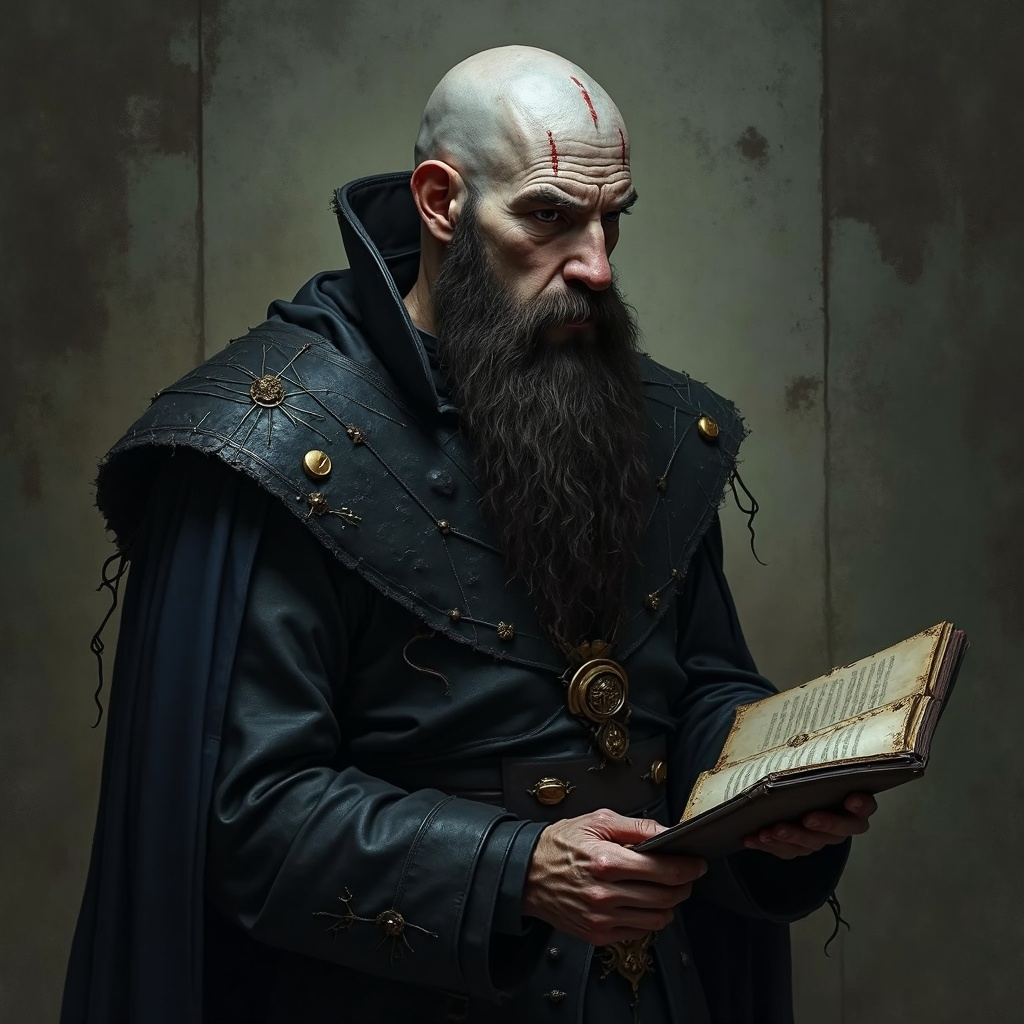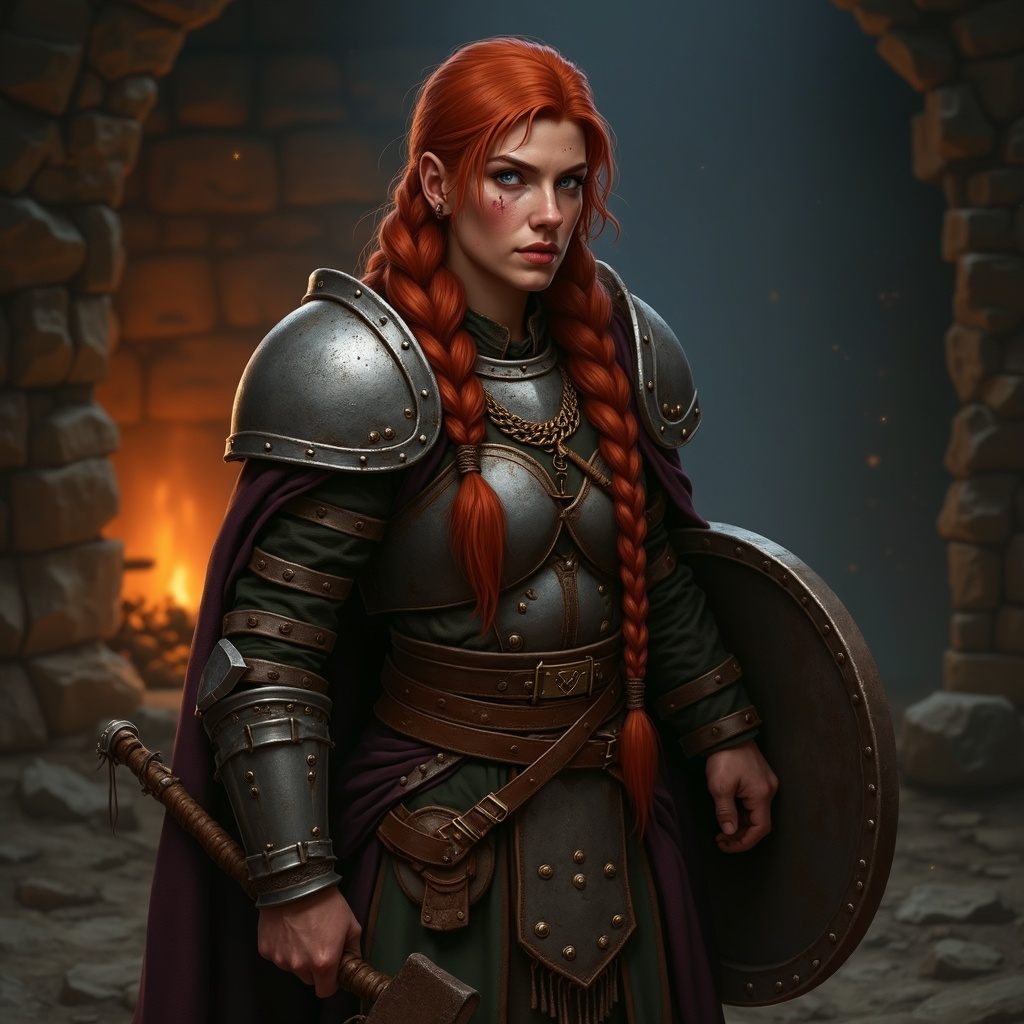Overview
The Dwarves are among the oldest mortal peoples to walk the lands of Skazka, forged in the deep places where mountains root themselves in streams of molten metal. Once servants of the gods, they were metalsmiths, miners, and artisans of unparalleled skill, their craft so fine it shaped the very tools with which creation was reshaped. Yet, for all their glory and devotion, their early history is steeped in betrayal, servitude, and rebellion. From those trials arose a people whose spirit burns with the fire of freedom, whose loyalty is as unyielding as stone, and whose legacy is carved into the bones of the earth itself.
At the heart of the Dwarven spirit lies an unshakable desire for freedom and self-determination. Their lives are driven by the memory of betrayal, and every hammer strike, every vein of ore mined, and every work of art forged becomes a declaration of independence. They value loyalty above riches, for they know how costly betrayal can be, and they place friendship and honor higher than life itself. Wrath comes easily to them when faced with treachery, but so too does fierce devotion to those who earn their trust. Their contests of strength, love of gambling, and endless drive to create reflect a worldview shaped by hardship but not defeated by it. For the Dwarves, life is both a wager and a forge—each moment a chance to shape destiny anew.
In the world of Skazka, Dwarves stand as a people apart yet indispensable. Their cities, particularly Nav’Golam, are bastions of stability and strength in the perilous depths, attracting trade, alliances, and respect. Though mistrustful of gods and those who embody deceit, Dwarves are legendary allies to mortals and nations who prove themselves worthy. Their loyalty is enduring, their word ironclad, and their bonds stronger than steel. While their hatred for Lolth and her kind ensures eternal conflict in the Underworld, on the surface and beyond, their reputation as smiths, warriors, and steadfast companions makes them a cornerstone of wider civilization. Wherever they dwell, they integrate through labor, craft, and unflinching honor, carving their place not through conquest but through the enduring weight of their character.



